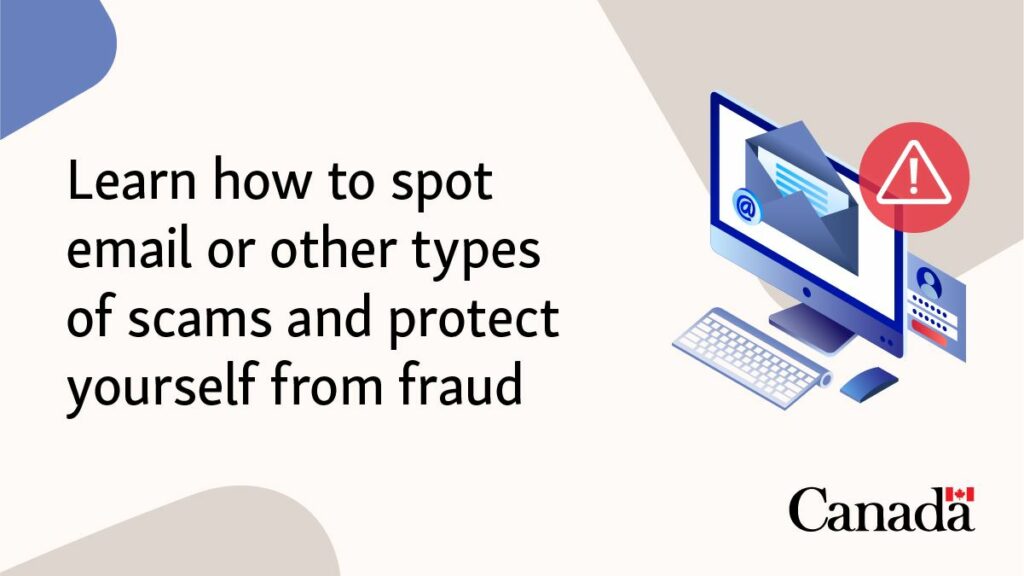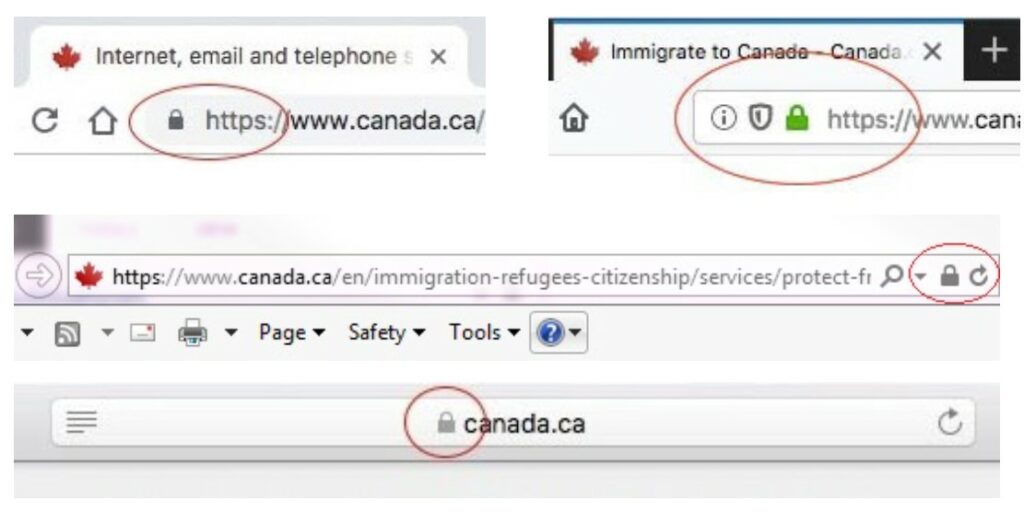Immigration and visa scams are a serious problem, and Canada is no exception. Scammers often target people who are vulnerable and desperate to immigrate to Canada.
They may promise to help you get a visa or job in Canada for a fee, but they will only take your money and disappear.
Canada Visa & Immigration Scams
This article delves into the pitfalls of scams targeting international students in Canada and provides guidance on how to shield yourself from falling victim to these fraudulent activities. Let’s explore the world of internet, email, and telephone immigration scams.

Telephone Scams: A Persistent Threat
One of the most prevalent scams reported in Ottawa and London, and potentially impacting other Canadian cities, involves fraudulent telephone calls targeting international students. A crucial point to remember is that Canadian immigration authorities will never ask for payments via telephone. Be wary of any caller making such requests, as these scams can lead to identity theft, fraud, unauthorized withdrawals from your bank account or credit card, and even introduce harmful computer viruses.
To protect yourself from these telephone scams, here are some key pointers:
Too Good to Be True: If an offer or opportunity sounds too good to be true, it probably is. Always approach unsolicited telephone calls with caution.
Beware of False Guarantees: No one can guarantee you a job or a visa to Canada except immigration officers at Canadian embassies, high commissions, and consulates. Be sceptical of anyone promising guaranteed entry.
Consistent Processing Fees: Fees for Canadian government services are the same across the board, both in Canada and around the world. Do not entertain requests for varying amounts or currency conversions unless stated otherwise on an official government website.
Payment Methods: Government employees will never ask you to deposit money into a personal bank account or transfer funds through private money transfer services. Furthermore, they will not resort to threats or offer special deals for immigration.
Email Channels: Be cautious if someone contacts you using free email services like Hotmail, Gmail, or Yahoo Mail. Official communications typically do not use such platforms.
Also Read: Canada Visa Processing Times for Indians: How Long Do You Have to Wait?
Internet Scams: Dangers of Fake Websites
When dealing with immigration procedures and applications, the Internet is a powerful tool. However, it’s also a breeding ground for scammers who create fake websites that look convincing. These websites often charge unsuspecting individuals for information and services that should be free. Protect yourself by following these guidelines:
Official Sources: Use the official Government of Canada website to apply for services like electronic travel authorizations (eTAs). Avoid third-party websites claiming to provide the same services for a fee.
Beware of Imitations: Criminals can easily mimic official websites. Always double-check the website’s address to ensure it matches the official one.
Security Indicators: Look for a padlock symbol in the browser’s address bar or the ‘https://’ at the start of the web address, indicating that the site is secure.

Research: If a website seems suspicious, conduct an online search to see if others have reported problems with it. Keeping your browser up-to-date can help detect fake websites.
Email Warnings: Be cautious of websites advertised in unsolicited emails from unknown sources. Do not provide personal information unless you’re confident about the source’s legitimacy.
Contact the Owner: If you have any doubts about a website’s authenticity, contact the website owner directly through telephone or email before proceeding.
Email Scams: Beware of Phishing
Email is another arena where scams thrive. Scammers may pose as legitimate entities, including the Government of Canada, to extract private information or direct you to fake websites. These are red flags to watch for:
Email Addresses: Genuine government emails use “gc.ca” or “Canada.ca” domains. Be wary of emails sent from private or free webmail addresses (e.g., Yahoo Mail, Hotmail, Gmail).
Generic Greetings: Scammers often use generic greetings like “Dear customer” instead of addressing you by your name. Verify the email’s authenticity before taking any action.
Request for Personal Information: Do not respond to emails requesting your date of birth, password, credit card, or bank details.
Unsolicited Emails: If you receive an unexpected email, exercise caution and scrutinize its content.
Image-Based Messages: Be wary of emails that contain images rather than plain text, as these could be an attempt to hide malicious content.
Visas by Email: The Government of Canada does not send visas by email. Any such claims in an email are a scam.
Telephone Scams: Protecting Your Personal Information
In the realm of telephone scams, it’s vital to remain vigilant. No genuine government representative will call you to collect payments, and you should be cautious when disclosing personal and financial information. Keep the following guidelines in mind:
- No Payments by Phone: Never make payments or share sensitive information over the phone with unknown or unverified callers.
- Information Confidentiality: Canadian immigration authorities prioritize the protection of your personal data. Be cautious when asked for credit card, bank account numbers, or any payment information.
Get help from a qualified immigration consultant
If you need help with your immigration application, consider hiring a qualified immigration consultant. A qualified consultant will be able to help you understand the immigration process and complete your application correctly.
Here are some tips for finding a qualified immigration consultant:
- Ask for references from other immigrants.
- Check to make sure that the consultant is registered with the College of Immigration and Citizenship Consultants of Canada.
- Be wary of consultants who promise guaranteed results or who charge high fees.
In the face of these internet, email, and telephone immigration scams, knowledge and vigilance are your best defences. Be cautious and verify the authenticity of all immigration-related communications to protect your identity and financial well-being.
Remember, when in doubt, it’s best to seek clarification from official channels to avoid falling prey to these fraudulent schemes.
Follow and connect with us on Facebook, Twitter, LinkedIn, Instagram and Google News for the latest travel news and updates!





